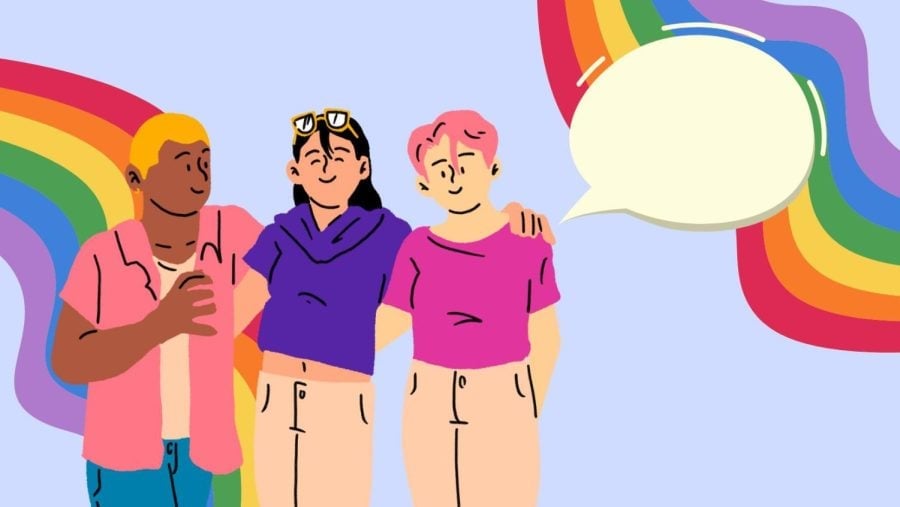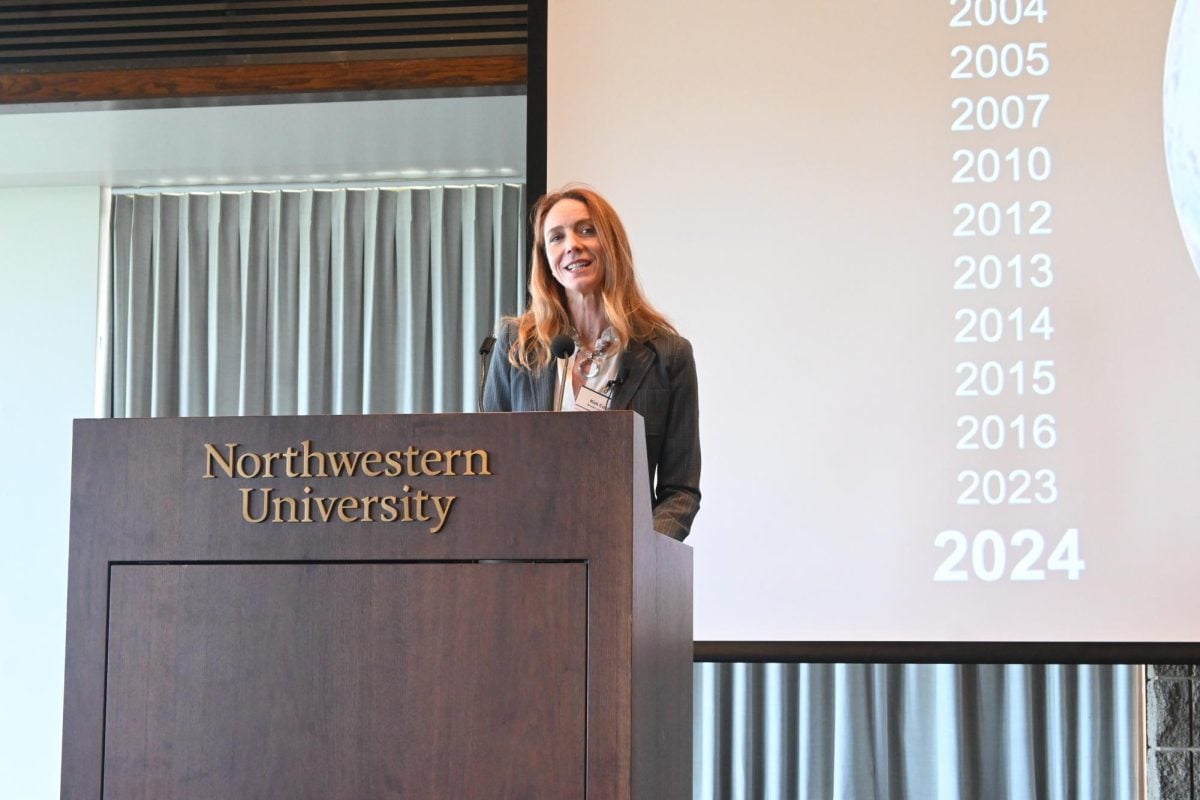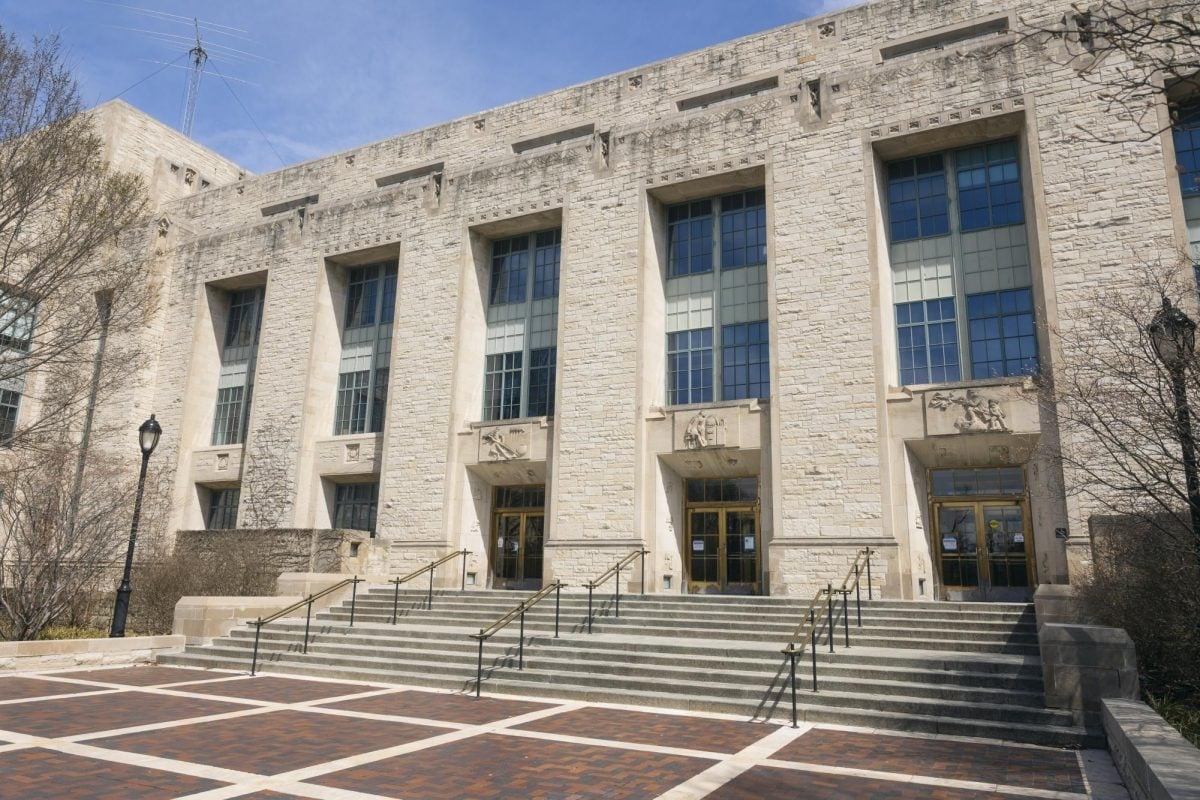The runner famous for raising his fist as a sign of protest at the 1968 Olympic Games visited campus Wednesday.
John Carlos, a bronze medalist and civil rights activist, spoke about his recently published autobiography, “The John Carlos Story,” in Harris Hall.
Students and Evanston community members attended the presentation, which was sponsored by Northwestern Graduate School, the Department of African American Studies, Alice Kaplan Institute of Humanities and Haymarket Books.
Fifth-year Ph.D. candidate for African American Studies Keeanga Taylor coordinated Carlos’ visit.
Taylor, who had previously worked with co-author Dave Zirin, said she thought the visit was a good opportunity for people to hear Carlos’ story.
“Students everywhere are interested in Civil Rights and sports history,” Taylor said. “But this is a great way to recognize John Carlos’ bravery.”
After winning the 200 m race in the 1968 Olympics, Carlos put his fist up during the National Anthem in protest of the racial injustice, causing much political controversy. This image became a symbol of the fight for human rights.
American gold medalist Tommie Smith put up his fist with Carlos, and Australian silver medalist Peter Norman wore a badge saying “Olympic Project for Human Rights,” in recognition of the movement calling for worldwide justice by way of the 1968 Olympics. This movement specifically asked African-American athletes to boycott the Olympics and called for more hiring of African-American coaches, the removal of South Africa’s invitation to the Olympics and the firing of the Olympics’ president, Avery Brundage.
In his presentation, Carlos spoke about his childhood experiences, his ideals and the Olympics.
He said the U.S. was very different politically and socially in 1968.
“In that moment of raising my fist, I could have been shot,” Carlos said. “It’s hard to believe. I was booed, and things were thrown at me.”
Carlos stressed that everyone can get involved and make change like he did.
“I am no different than anyone in the audience, “Carlos said. “God just blessed me.”
Some students who attended said they learned not only about Carlos but also his political influence.
Communication sophomore Jovie Maize admitted she came because her roommate has a picture of Carlos holding his fist up.
“I like the picture,” Maize said. “But now I know so much more about it.”
Martha Biondi, African American Studies professor, said it is important for students of today’s generation to learn about the people who took risks for racial justice like Carlos did.
She said Carlos used the Olympics as an international arena to draw attention to racial injustice worldwide.
Biondi also said Carlos’ story should especially resonate with NU students who take part in social movements like the Living Wage Campaign, in which students work to make sure NU workers earn fair wages to live and take care of their families.
“These social movements at NU reflect Carlos’ legacy to work toward justice,” Biondi said. “He is a model for us to emulate.”
Since the 1968 Olympics, Carlos has worked for the NFL and helped coordinate the 1984 Olympics. Recently, Carlos spoke before the general assembly for Occupy Wall Street.
Carlos will speak Saturday at the Occupy Chicago march on Jackson and LaSalle streets at 3 p.m.







